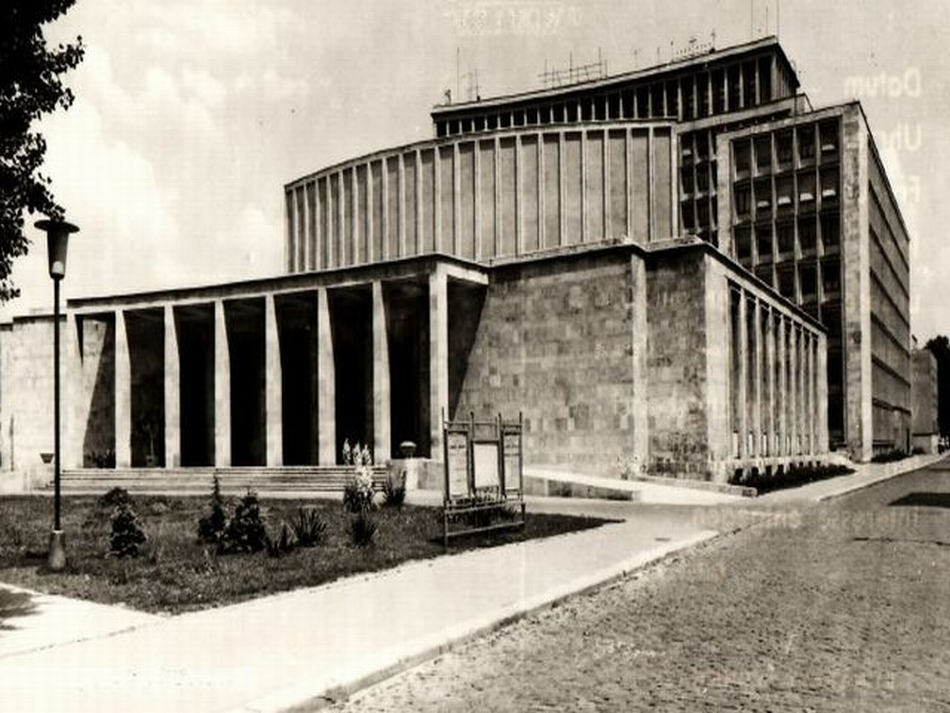The Romanian Radio Broadcasting Corporation and Fascism
Fascist and authoritarian right-wing regimes coming to power all over Europe in the late 30s, massively relied on the radio as a means of propaganda, in a bid to gain legitimacy and consolidate their position. The same things happened in Romania.

Steliu Lambru, 15.07.2013, 14:19
In the interwar years, radio broadcasting was an absolutely groundbreaking phenomenon both as a press institution and in terms of technological progress. Radio reporters were in the middle of the main events shaping the 1930s and the history of this new invention qualifies it as a reliable source in the process of studying contemporary history.
Fascist and authoritarian right-wing regimes coming to power all over Europe in the late 30s, massively relied on the radio as a means of propaganda, in a bid to gain legitimacy and consolidate their position. The same things happened in Romania too, after the National Radio Broadcasting Corporation had been set up in 1928. Politicizing was one of the main challenges this institution had to overcome, because the rise to power of right and left wing totalitarian regimes affected its objectivity and equidistance.
The numerous recordings stored by the Oral History Centre in the Romanian Radio Broadcasting Corporation between 1990 and 2000 have confirmed the difficulty of keeping a balance between the pressure exerted by the communist regime and the employees’ work ethic. However, the main events, such as the assassination of Iron Guard head Corneliu Zelea Codreanu in 1938, were given proper coverage in news bulletins. In 2001 Professor Olimpiu Borzea recollected how he learnt about the event from a radio broadcast:
“It was on November the 29th, the eve of St. Andrew. I remember being in the big hall of the Theology Academy, where the intellectual elite of Sibiu used to gather. That was my second year of study in a state-of-the art, modern school. I left the classes that day and made it for the Cheese Market downtown Sibiu, when I heard in the speakers outside, ‘Attention, attention! A group of Ironguardists have been shot after trying to flee custody!’ We were all stunned by the news. What? we said. And it seemed that everybody froze on the spot in the market that day!”
Vasile Blanaru got a job at the Radio in 1938. He first worked in the Radio Drama Department, then held various management positions. In 1999, he talked about the presence of the fascists in the institution.
“The Iron Guard members in the Radio Corporation made up a separate service. It was part of an Iron Guard branch that also included the legionnaires in the Culture Ministry, in printing houses and in the Country Guard. There were five or six sections in all, and they were all headquartered in the Radio Broadcasting Corporation building, on Esculap Street, near Berthelot Street. I headed this service until after the rebellion. And in this capacity, and also as a political representative, I took part in the meetings of the Board of Directors, chaired by Nichifor Crainic. A government order was issued, under which Jews were no longer allowed to work in public institutions. I was also the head of the Salaries Department, and I made this proposal: if we fired someone from the Radio, we should pay them at least their salaries for 6 months. Only one Jew working at the Radio was fired, and he received his six-month pay.”
Another important event was the murdering of Prime Minister Armand Calinescu by the Iron Guard, on September 21st, 1939. After the assassination, the perpetrators announced their deed on the public radio.
Vasile Blanaru was there when the legionnaires went on air: “I happened to be in the Radio building that particular day. Miti Dumitrescu, Traian Popescu and Moldovanu, together with 6 members of the squad that shot Armand Calinescu down in Cotroceni, came upstairs in the broadcasting studio, where the orchestra was performing. They were armed, they had weapons, pistols and grenades. They were really well armed! The orchestra got up, and one of them, Traian Popescu, said on the radio that a team of legionnaires executed the enemy of the people, the whole story. They put behind the door all their weapons, their grenades and pistols, and went downstairs, at the police constable of the Radio Corporation, and gave themselves up. I saw them myself going to give themselves up.”
The Romanian Radio and Television Broadcasting Corporation was a hot spot during the legionnaire rebellion of 21-23 January 1941, when General Ion Antonescu, with support from the army and Nazi Germany, removed the Iron Guard from power. Engineer Gheorghe Crisbasanu was in charge of the Bod emitter in 1934. In 1997, he recalled those moments:
“I came by car to Bucharest, and they stopped me at the gate, barred my access to the stations, so I couldn’t bring weapons to the legionnaires. And then the colonel in charge told the sentinel to call the head of the guard formed by the legionnaires to talk to him. He came over, with his entire guard, about 12 people in all, unbelted their pistols, and they were taken straight to jail, to Brasov. And then I got permission to get into the yard, after I got checked for the weapons they believed I had on me.”
The Romanian Radio Broadcasting Corporation was free on 23 August 1944, but alas only for a short time, as history would have it. Communism came and enslaved it for several decades.






























